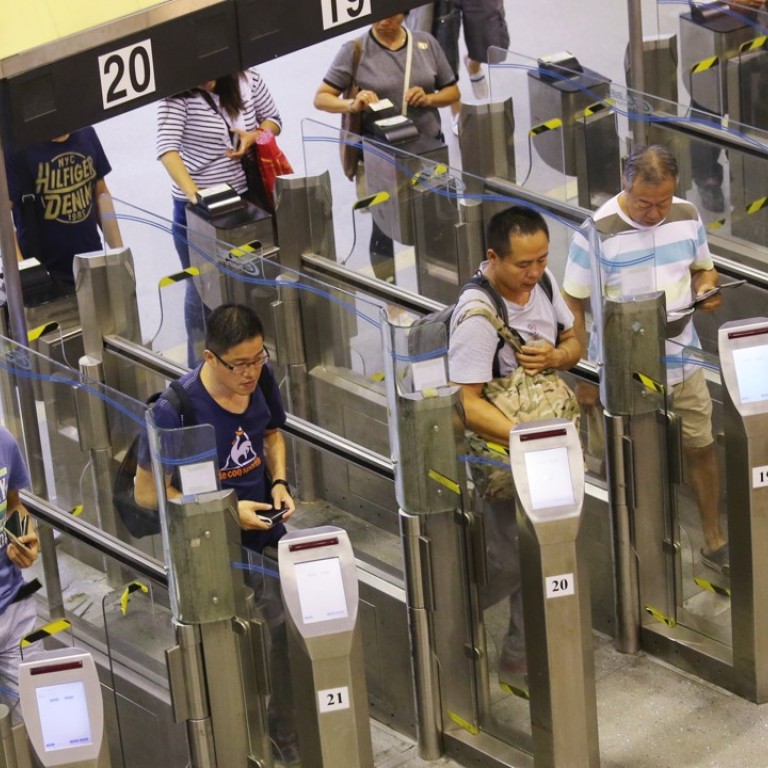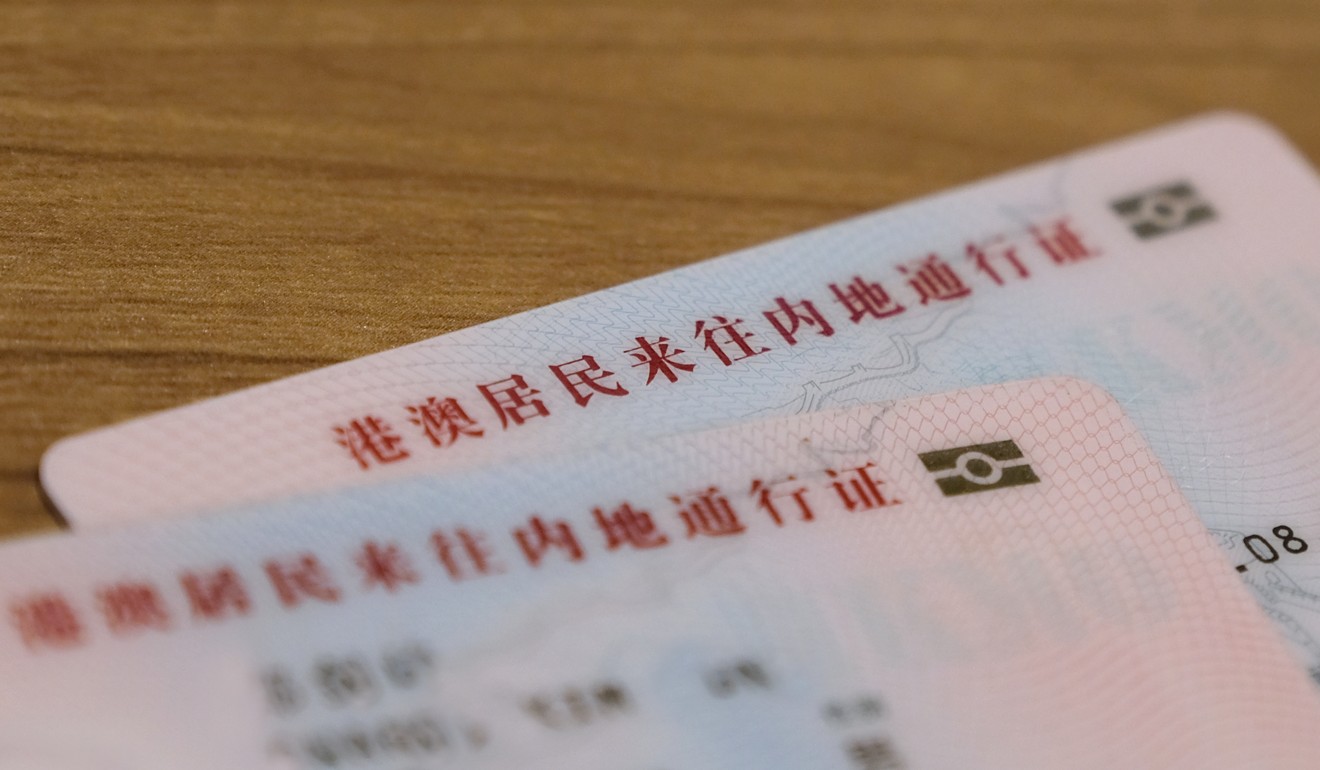
Beijing considers ‘significant upgrade’ to Hongkongers’ home return permits
Upgrade could replace Hongkongers’ current home return permit’s eight-digit code with 18-digit code used by mainland Chinese citizens
Beijing is considering a significant upgrade to the identity card issued by mainland Chinese authorities that allows millions of Hongkongers to cross the border, with the aim of granting them easier access to more services across the country.
The move was revealed on Tuesday by local delegates to the national legislature, days after the central government announced plans to issue “residence permits” to Hongkongers living or studying in mainland China so they can have access to a wide range of public services and facilities currently enjoyed exclusively by their mainland counterparts.
“We have learned that the mainland authorities, probably the public security authorities, intend to upgrade the home return permit,” said Tam Yiu-chung, Hong Kong’s sole delegate to China’s top legislative body, the National People’s Congress Standing Committee.
The home return permit is a travel document in the form of an ID card issued by mainland authorities to Hong Kong permanent residents for cross-border travel. It is also an important identity document during the holder’s stay on the mainland.
There are about 6.9 million Hongkongers holding home return permits.
But some frequent travellers have complained they cannot use the permit for conveniences such as checking into more affordable guest houses that are licensed to serve mainlanders only, or to board high-speed trains directly without having to queue up for tickets or print them out in advance after making online bookings.
According to Tam and Ip Kwok-him, a Hong Kong delegate to the NPC, the potential upgrade might include replacing the current permit’s eight-digit code with the 18-digit code used by mainland citizens.
The new code would make Hongkongers’ home return permits compatible with various digital systems in use across the border, many of which only recognise mainlanders’ 18-digit codes. It would make access to public and private services faster and more convenient.
“It is supposed to target Hong Kong people who need to travel frequently to and from the mainland. It will not grant you free education or employment benefits on the mainland, which will only be accessible through the new residence permit,” Ip said.
He suggested it would also help boost their sense of national identity.

Ip, a member of Chief Executive Carrie Lam Cheng Yuet-ngor’s cabinet, said it was unknown at this stage whether mainland authorities would replace all existing home return permits with the upgraded ID cards or introduce a new class of permits. No time frame was provided.
Many mainland conveniences are based on the trade-off of personal information
Since taking office last July, Lam has sought policy changes to make it easier for Hong Kong people based or travelling across the border.
Last year, President Xi Jinping called for making it “more convenient” for Hongkongers to study, work and live on the mainland so that the city could take advantage of national development opportunities.
Several changes have been announced since then, including allowing more Hong Kong children to study in public schools on the mainland, and letting Hongkongers working there contribute to a fund to help them own property.
In a major announcement earlier this month, Beijing said Hong Kong, Macau, and Taiwan citizens could start applying for a residence permit from next month to enjoy access to 18 public services and facilities across the border.
Residence permit holders will be entitled to employment as well as participation in social insurance and housing fund schemes. They will also get access to public services such as free education, basic medical care and legal aid.

Legislator Jeffrey Lam Kin-fung, a member of the Chinese People’s Political Consultative Conference, welcomed the plan to upgrade the home return permit, saying it would form “an important basis of promoting free movement of persons, capital, goods and services between Hong Kong and the mainland”.
However, opposition lawmaker Wu Chi-wai of the Democratic Party warned of possible privacy risks.
“Many conveniences on the mainland are actually based on the trade-off of personal information,” Wu said. “If Hongkongers want to take the convenience offered by the mainland authorities, they must be prepared for the risks.”
Wu’s party colleague, James To Kun-sun, who is deputy chairman of the Legislative Council’s security panel, said: “Many online services on the mainland, ranging from shopping to payment, require users to register their 18-digit citizen’s code and therefore their real identities. The more services you sign up for, the more of your activities can be traced.”
But Ip countered: “You can’t convince those whose goal is to resist anything Chinese. I don’t think the mainland would force Hong Kong people to use the upgraded permit. If you are so afraid, you can choose not to apply, or not to step foot on the mainland.”

Kevin Lau Kam-wai, a 39-year-old Hongkonger who runs a trading business in Zhuhai, expressed concern that the permit upgrade might be a paperwork headache.
“I have two to three companies [on the mainland] registered with my current home return permit,” Lau said. “If I apply for a new permit with a new code, does it mean that I will have to change all the business registrations?”
Lau also had a question about identity: “We home return permit holders cannot check into hotels licensed to serve mainlanders only because we are identified as non-mainlanders. Will we be considered mainlanders with the new permit?”


